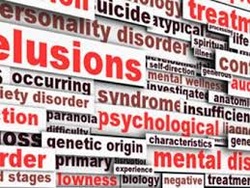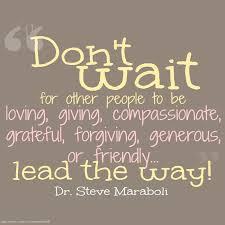
Your husband has a disease. It not only affects his life, but the lives of everyone in your family. Your friends and family provide you with an abundance of support. They fix dinner for you, they offer to take him to doctor appointments to give you a break, they have a fundraiser to help pay for medical expenses your insurance won’t cover, and they call to ask how he is…how you are. You feel loved. You don’t feel so alone.
Or imagine this...
Your daughter has been victim to a terrible trauma. The side effects from this trauma have been life altering for her, as well as everyone in your family. Your friends and family show up with food. They take you out to talk and hear how things are going.
They offer support to your daughter as well, understanding it takes a village. They spread the word your family needs support and your community rises to the call.
You feel relief. You don’t feel so alone.
Most of us can imagine this because we have been on the giving or receiving end of a loved one suffering from cancer, or a heart attack, or a car accident.
Let’s take it a step further though. Your local high school has “green night” at the basketball game. They are selling green t-shirts to support people struggling like your husband and daughter.
They are having…MENTAL ILLNESS AWARENESS NIGHT.
At half time they recognize your husband for living with bi-polar disorder and depression. They recognize your daughter for overcoming her substance abuse and
finding the right medicine and treatment for PTSD (Post Traumatic Stress Disorder) after returning from Iraq. They recognize the care givers of those who are mentally ill and promise more research and better treatment with the money they raise. Again, you feel your community’s support. You don’t feel so alone.
Can you imagine the last scenario? Probably not. We only talk about mental illness when it’s to place blame. When are we going to start recognizing mental illness as the crippling disease it is? When are we going to start supporting our brothers and sisters suffering from depression the same way we support those suffering from cancer?
When is raising money for the research and treatment of schizophrenia going to be as important as the research and treatment for heart disease? When will feel comfortable discussing our substance abuse the way we discuss our diabetes? Don’t tell me it’s because people die from physical illness but not from mental illness. Read the paper. Watch the news. We are a country suffering from an epidemic of mental illness that is
going to ruin this country. People are dying every day from the affects of mental illness and the funding just keeps decreasing as the need is increasing at lightning
speed.
How many more are going to be killed?
Miriam Carey, who drove through a White House barrier and engaged Capital police in a
high speed chase with her one-year old in the car, was suffering from postpartum
depression and psychosis. She is just one of a string of mentally ill people who have been killed or killed others in the recent past. These include Aaron Alexis who reportedly believed he was being controlled by electromagnetic waves when he killed 12 people at Washington Navy Yard in Washington, D.C., Adam Lanza who killed 26
people at the Sandy Hook Elementary School in Newtown, Connecticut and James
Holmes who killed 12 people at the premier of a Batman movie in Aurora, Colorado. In my own hometown, Seung-Hui Cho, who killed 32 people and injured 17 more in the Virginia Tech massacre, was suffering from a severe anxiety disorder and major depressive disorder. And just this week in my home state, Virginia Senator Creigh Deeds was stabbed multiple times by his alleged mentally ill son who has been turned away from a psychiatric hospital the day before due to lack of beds.
There is a stigma that comes along with mental illness that prevents people from
getting help and like any other kind of illness, untreated mental illness only gets worse, not better. According to the National Institute of Mental Health (NIMH), an estimated one in four adults suffers from a diagnosable mental disorder in a given year. I think about all those Americans suffering while both society and the health care industry do very little to alleviate their suffering. Health care companies provide incentives to lose weight or stop smoking, but most offer nothing when it comes to mental illness.
Victoria Brownworth summed it up best on a blog post written for The Huffington Post dated October 7, 2013. The article called Crazy Every Day: America's Mental Illness Epidemic which describes living with her mentally ill mother concludes this way…
“Nearly 60 million Americans suffer right now from some form of mental illness, be it psychosis like Carey or schizophrenia, depression, anxiety, bi-polar disorder, an eating disorder. Many of those people are compliantly taking medications and others are wandering lost in America, unmedicated, hearing voices, thinking paranoid delusional
thoughts and literally going out of their minds.
How many families have to be devastated by the impact of this disease before we make mental illness a priority in this country? One in four is sick. If it were influenza, it would be an epidemic. Let's start acting like mental illness is illness first, mental
second. It's a public health crisis in America. And until we address it, there will be more Miriam Careys, more Aaron Alexises, more mothers like mine and so much untreated suffering, we might all go crazy from the pain.”
I don't want to go crazy from the pain. How about you?



 RSS Feed
RSS Feed
